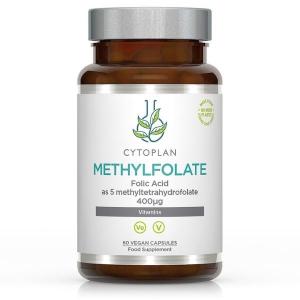
What do doctors say about the connection between cancer and nosebleeds

When a Nosebleed Occurs - Could It Be a Serious Warning Sign?
A nosebleed is an occurrence that most people have experienced at least once in their lives. Whether it's due to dry air, an impact, or a sudden increase in blood pressure, it usually isn't anything serious. However, there are exceptional cases where recurring nosebleeds could signal something more serious, such as cancer. The topic of "nosebleeds and cancer" is sensitive, but that's precisely why it deserves attention.
While most cases of nosebleeds (medically referred to as epistaxis) have benign causes, repeated or unexplained bleeding may be the result of a more serious condition. This often raises questions: Could frequent nosebleeds be a symptom of cancer? When should one be concerned?
The Most Common Causes of Nosebleeds
Before diving into the potential links between cancer and nosebleeds, it's important to understand the common reasons why epistaxis occurs. The nasal mucosa is very sensitive and richly vascularized, so a slight trigger can easily damage it.
Common causes include:
- Dry air, especially during winter or when using air conditioning
- Mechanical irritation – scratching, blowing the nose, or nasal injury
- Allergies and respiratory infections, which weaken the nasal mucosa
- High blood pressure, which increases the fragility of blood vessels
- Excessive use of nasal sprays or blood-thinning medications
In these cases, the bleeding is usually unilateral, short-term, and well manageable with home care. However, if the bleeding recurs, lasts longer than 20 minutes, or is bilateral and accompanied by other symptoms, it is necessary to see a doctor.
When Is a Nosebleed a Cause for Concern?
The question of whether frequent nosebleeds could be a symptom of cancer is quite common on online discussion forums and in general practitioners' offices. The answer? Yes, in some cases, it can be a warning sign, although it is not common.
One type of cancer where nosebleeds may occur is a tumor in the nasopharynx or nasal cavity. These tumors typically appear in older age and, besides bleeding, also manifest as nasal congestion, headaches, or voice changes. Rarer but perhaps more concerning are cases of hematological malignancies – blood-forming cancers, such as leukemia.
In leukemia, there is a decrease in the number of platelets (thrombocytes), which are responsible for blood clotting. The result is a tendency to bleed even with slight irritation, including frequent epistaxis. In addition to nosebleeds, unexplained bruising, fatigue, pallor, frequent infections, or night sweats may occur.
A known case describes a young woman who complained of frequent nosebleeds for several weeks, initially attributed to dry office air. When unusual fatigue and strange bruises on her legs appeared, she decided to see a doctor. Blood tests eventually confirmed acute myeloid leukemia. Such cases demonstrate how important it is to listen to your body and not underestimate recurring symptoms.
How to Recognize That Something Is Wrong?
A single nosebleed once in a while is not a reason to panic. But how can you distinguish between regular and harmless episodes and those that might be part of a broader health issue?
You should definitely be alert if the bleeding occurs frequently, lasts over 20 minutes even with attempts to stop it, or if blood appears not only from the nose but also in urine or from the gums. If this is accompanied by fatigue, pallor, fever, or enlarged lymph nodes, do not underestimate it – especially if someone in the family has blood formation or cancer issues.
In such cases, a visit to a general practitioner is warranted, who may recommend blood tests, an ENT examination, or possibly refer you to a hematologist. Early diagnosis is always crucial – not only for cancer but also for other systemic diseases that may accompany epistaxis.
What Do Medical Sources Say?
According to the American Society of Hematology, nosebleeds are one of the possible symptoms of hematological malignancies, especially in more advanced stages. The Czech version of the National Cancer Program states that early recognition of symptoms of hematological tumors is essential for successful treatment.
Professor MUDr. Pavel Klener, a leading Czech expert in hematology, mentioned in an interview for Czech Radio: “A nosebleed can be an innocent phenomenon, but if it recurs and there is no logical explanation, it is necessary to look for a systemic problem. This is particularly true for people under 40 without other health complications."
Can Lifestyle Influence the Risk?
Surprisingly – yes. A healthy lifestyle, quality diet, and sufficient vitamins, especially vitamin C and K, can help improve the condition of the vascular wall and support healthy blood clotting. Regular exercise, avoiding smoking and alcohol, and adequate hydration are the foundations of prevention not only for lifestyle diseases but also for blood formation issues.
From an ecological approach, it's also worth considering the chemicals and cosmetics used at home. Some synthetic substances can irritate the mucous membranes, increasing the risk of repeated bleeding. Choosing natural, non-toxic products that do not contain aggressive ingredients can be a simple but effective measure.
Try our natural products
Key Takeaways
Nosebleeds are common and often harmless. However, they can also be a warning sign of a more serious illness. If they recur without an obvious cause, last longer than usual, or are accompanied by other symptoms, they should not be overlooked. The body knows how to ask for help – and sometimes a small but recurring problem can be the first call to stop the daily rush and pay more attention to your health.
Visiting a doctor, blood tests, and comprehensive examinations can reveal whether it's a trivial issue or something that deserves attention. Prevention, self-care, and trust in your intuition remain the most effective tools for a healthy and conscious life.







